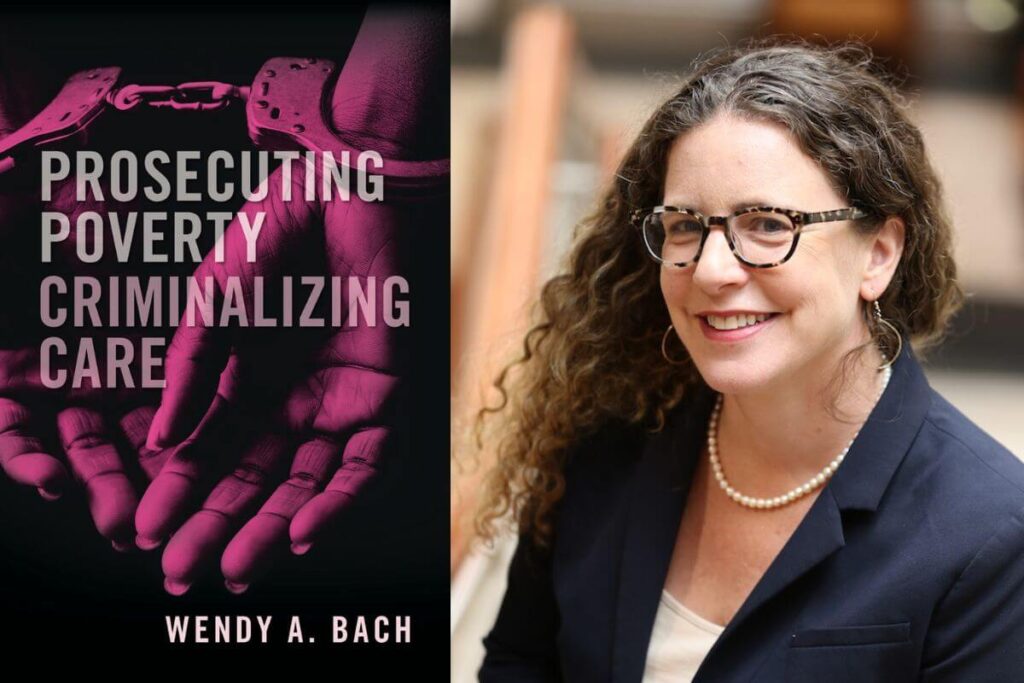A new book from Professor Wendy Bach details how the Tennessee state government created, passed and enforced a law that criminalized pregnant women who were victims of the opioid epidemic.
Bach spent almost three years gathering information for what would become the book “Prosecuting Poverty, Criminalizing Care” after spending decades representing clients who were subject to similar punishment.
“This book tells a story about the prosecutions of 120 particular women, but it also tells a broader story, about how criminal systems actually work in poor communities.” Bach said.
The book details how in 2013, as a response to America’s opiate epidemic, legislators created fetal assault laws as a mechanism to secure treatment resources for women addicted to opiates. The result of the legislation led to punishment for a pregnant woman – most often the poorest of the poor – who were struggling with substance use disorder. For the majority of the women in the criminal system that this impacted, there was no evidence in their court files that they were even offered or received care.
By drawing on quantitative and qualitative data, Bach demonstrates that both prosecuting fetal assault and institutionalizing the idea that criminalization is a road to care lead to harsh punishment, very little justice and corrupted forms of care.
Bach concludes that lawmakers must separate systems of care from systems of punishment, decriminalize care and move toward more respectful systems that meet the needs of families in poor communities.
“This book ended up being published weeks after the Supreme Court overturned Roe v. Wade, opening the door to even more prosecutions of conduct related to pregnancy,” Bach said. “It is my hope that the book is useful for those seeking to decriminalize care and to provide respectful forms of support and care to families in poor communities.”
Bach, a nationally recognized expert in clinical legal education, poverty law and the interactions between systems of support and systems of punishment, has been with the College of Law since 2010. Before becoming a professor, she was director of the Homelessness Outreach and Prevention Project at the Urban Justice Center in New York City and a staff attorney with the Legal Aid Society of Brooklyn.
She has dedicated her career to representing children and families in poor communities in a variety of legal settings. She has been published in the William and Mary, Wisconsin, Brooklyn, and Michigan Law reviews, The Florida Tax Review and The Yale Journal of Law and Feminism. This is her first book.
